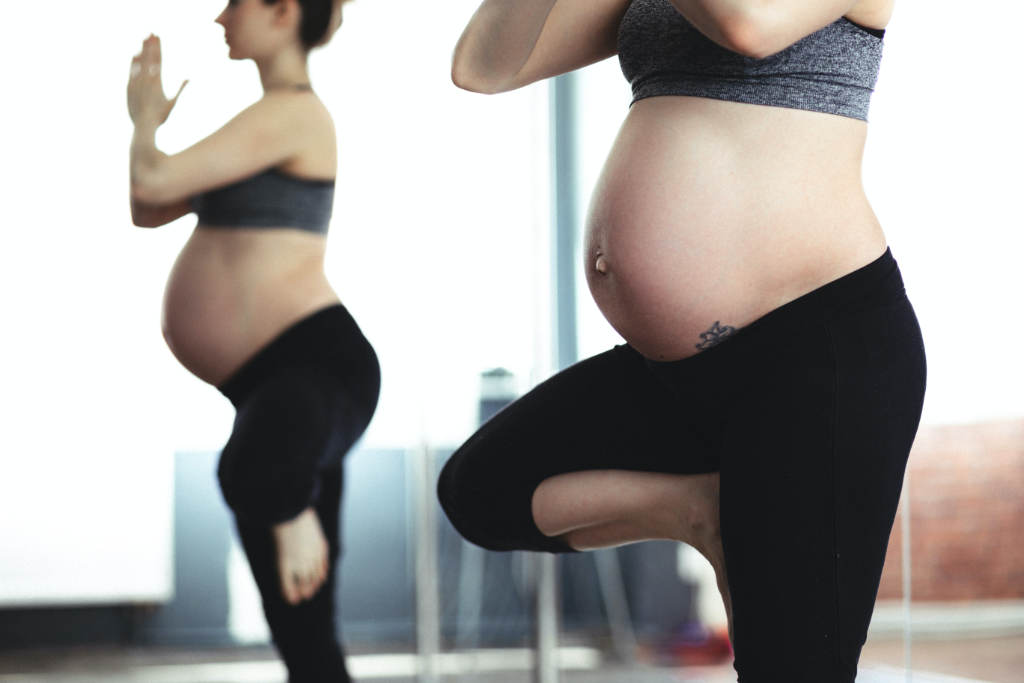With pregnancy comes many blessings, and many changes to the body! You might feel nauseous, your feet can swell, your boobs and nipples change. Your blood volume also increases by around 50%, and in some cases up to 100%! This change can affect your circulation.

Can poor circulation affect my pregnancy?
Maintaining good circulation is important in pregnancy. Blood flow to the womb ensures the baby is growing well and getting the nutrition and oxygen it needs to survive and thrive.
Poor circulation can lead to pregnancy complications ranging from minor to major. It can cause a number of ailments including swelling and blood clots. In some cases the viability of the pregnancy can be compromised.
Is bad circulation normal during pregnancy?
Yes, circulatory issues are quite common in pregnancy. Your heart is working overtime to circulate blood to you and your growing baby. With your increased blood volume your heart may pump at varying rates and less efficiently, slowing circulation. Most of the time this is nothing to worry about. Your OB or midwife will monitor your blood pressure at your prenatal visits to make sure that everything looks healthy and normal.
3 Signs of poor circulation in pregnancy
Swelling: swelling in the feet and ankles is normal during pregnancy. It is especially common in the third trimester as your body accommodates your growing baby. Swelling is due to fluid retention and changes in circulation
Dizziness: Changes in your circulation can also cause low blood pressure. This may make you feel dizzy or lightheaded, when you stand up too quickly or with too much exertion.
Fatigue: Fatigue is common during pregnancy for a number of reasons. You are growing a human after all. But it can also be a sign that your blood flow is irregular.
How can I improve my circulation during pregnancy?
If you experience any or all of these symptoms there are a few things you can do to help, and to try to make sure it does not get any worse.

The first tip is to get moving. Go for a brisk light walk every day. After lunch you can take a thirty minute walk to help your food digest and promote good circulation. Ask your co-worker or a friend to join you. Stretching and yoga can also improve your circulation. Always check with your provider before to be sure the movement you choose is safe for you and your pregnancy.
Compression socks might sound funny, but they are a hot commodity in pregnancy. These socks ensure that blood does not pool in your ankles and feet when you are standing or sitting for long periods of time. Be sure to put your feet up too and let gravity help regulate circulation.
Acupuncture or prenatal massage are also great ways to improve circulation and promote relaxation. You can tell your acupuncturist what you are experiencing, and be sure to tell them that you are pregnant (even if it feels obvious)! Prenatal massage facilitates good blood flow.
A pregnant person deserves a lot of rest. When you are taking a load off or having a nap, try laying on your left side. This allows space in your anatomy for your heart to pump more freely, especially when all your organs feel squished by your growing babe.
As always during pregnancy it is important to stay hydrated. Hydrating will also help your blood thin out so that you don’t run the risk of blood clots. The body naturally clots more when you are pregnant to prevent blood loss during delivery. So drinking water will help your blood thin out a little and move more easily through the body.

When to worry about poor circulation in pregnancy?
Usually your changes in circulation are nothing to worry about in pregnancy. It is normal to feel tired, become lightheaded and experience some swelling. But when are the symptoms of poor circulation in pregnancy a cause for concern? When should you call your doctor?
Here are four major complications related to poor circulation in pregnancy:
Please note! It is important to go to all of your prenatal appointments so they can keep track of your health and look out for warning signs of these serious health conditions. Contact your doctor with any questions or concerns or if anything feels out of the ordinary.
Hypertension: Gestational hypertension is high blood pressure during pregnancy. Some symptoms of gestational hypertension are swelling, a headache that does not go away, blurred or double vision, nausea or vomiting, producing less urine than normal, and sudden unexpected weight gain. Call your doctor if you experience any of these symptoms. Your provider will likely want to monitor your blood pressure more closely. They may want to have you track your baby’s movements in the womb. Your provider might have you do a nonstress test. It is possible they will order some other tests to check on the health of your baby. It is possible that your doctor may prescribe medication.
Preeclampsia: Preeclampsia is high blood pressure and damage to the kidneys, indicated by protein in the urine. Symptoms of preeclampsia are severe headaches, blurred vision or temporary loss of vision, nausea/vomiting, pain under the ribs, usually on the right side and shortness of breath. Contact your doctor right away if you have any of these symptoms. Your doctor may recommend that you take low dose aspirin if you are at risk for preeclampsia. Usually your baby will be delivered early if you are diagnosed with preeclampsia, and you might be put on bed rest.
Blood clots: Deep Vein Thrombosis is a blood clot in the deep vein. People run a higher risk for DVT in pregnancy because blood clots more easily when you are pregnant. There is also added weight and stress on your pelvis and lower limbs with your growing baby inside of you. When you develop blood clots you might have no symptoms, or you might experience redness, swelling and pain in the affected area. It could also be warm to the touch and tender. Another worry with deep vein thrombosis is pulmonary embolism. This is when a piece of the blood clotted in your vein breaks away and travels to your lung, making it harder to breathe.
How to Improve Circulation When on Bed Rest in Pregnancy
All of these complications are a result of poor circulation. So what happens when you are on bed rest in pregnancy? Well of course when you are confined to a bed you have less opportunities to go for a walk or exercise your yoga practice. The risk of complications from poor circulation certainly increases with bed rest.

Your OB or midwife may put you on bed rest, especially in late pregnancy, for a number of reasons. It is important that you follow the instructions of your doctor. When you are told to be on bed rest it is for the safety and health of you and your baby. There are ways to improve circulation even when you are confined to a bed.
In your bed you can still stretch and do exercises to maintain healthy circulation. You can do guided meditations that gradually tense and relax all the muscles in your body, making sure to pay extra attention to your arms, legs and feet. Make sure you are changing positions somewhat frequently to give your muscles a stretch and some work to do. Make circles with your ankles to loosen them up. Try squeezing a stress ball. And always be sure to drink plenty of fluids throughout your day.
Always consult your doctor before performing any physical activity on bed rest. There are different reasons for why you might be told to rest, and certain physical activities should be avoided (like working your abdominal muscles).
Conclusion
Maintaining good circulation is important for the health of you and your baby during pregnancy. But even if you are experiencing some of the symptoms of poor circulation there are ways to make sure that you and your baby stay healthy and safe. Always make sure to attend all of your prenatal appointments! Your care provider knows best how to identify and treat possible complications from poor circulation. If you experience any new or worrisome symptoms be sure to get in touch with your care provider to let them know, and seek treatment if necessary.
If you have poor circulation during your pregnancy it is not your fault! And you can help improve your circulation with light exercise and hydration. If this is not enough your care team can help you devise a plan to make sure you and your baby are both doing well. Some of these symptoms and complications can be scary. Always reach out to people and providers that you trust to help you solve your problems. You are not alone!
